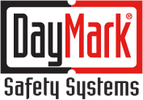From Plan to Action: Convenience Stores Moving to Protect Staff and Customers
Posted on 24th Aug 2020
 Considered essential businesses, c-stores have remained opened throughout the COVID-19 pandemic, requiring a rapid response from retailers to follow health and safety guidelines established by the Centers for Disease Control and state and local health departments. Now, in addition to running their businesses, c-store operators are also challenged with ensuring the health and wellness of their customers and staff.
Considered essential businesses, c-stores have remained opened throughout the COVID-19 pandemic, requiring a rapid response from retailers to follow health and safety guidelines established by the Centers for Disease Control and state and local health departments. Now, in addition to running their businesses, c-store operators are also challenged with ensuring the health and wellness of their customers and staff.
Most c-stores regularly contend with smaller spaces where customers are close together and where many of their amenities include self-serve touching, such as coffee pots, drink machines and food utensils. Due to the pandemic, however, operators now have additional expectations to meet, including socially distanced lines and signage, contactless payment, and hand sanitizer for everyone. Many c-stores now require masks, too, even if not legally mandated, and are limiting how many customers can be in the store at one time.
Considered essential businesses, c-stores have remained opened throughout the COVID-19 pandemic, requiring a rapid response from retailers to follow health and safety guidelines established by the Centers for Disease Control and state and local health departments. Now, in addition to running their businesses, c-store operators are also challenged with ensuring the health and wellness of their customers and staff.
Most c-stores regularly contend with smaller spaces where customers are close together and where many of their amenities include self-serve touching, such as coffee pots, drink machines and food utensils. Due to the pandemic, however, operators now have additional expectations to meet, including socially distanced lines and signage, contactless payment, and hand sanitizer for everyone. Many c-stores now require masks, too, even if not legally mandated, and are limiting how many customers can be in the store at one time.
Affordable technology fosters compliance with cleanliness routines
Complying with safety regulations while delivering a pleasant and convenient shopping experience for customers is critical to maintaining a positive brand image and reputation. Developing a health and safety plan to protect both staff and the public is an effective way to stay organized, but it is only half the battle—implementing those plans can present an entirely different challenge that calls for strong attention to detail.
Keeping up with staff requirements includes implementing additional safety protocols such as temperature checks, mandatory mask- and glove-wearing, new cleaning procedures and other revised systems. Using cloud-based technology is an efficient and cost-effective way to keep employees organized. New online tools are becoming available to increase and enhance efficiencies when it comes to oversight of employee assignments.
One such tool is available exclusively through DayMark’s MenuCommand® Kitchen Automation Platform, an affordable system that can be adopted and deployed in minimal time, with little—if any—burden on current infrastructures. The new Task Management application lets c-store owners track and oversee employee tasks and scheduling, while also documenting the progress of ongoing store operations. The app also can store training material for additional cleaning and sanitization procedures that are vital to maintaining a safe and healthy working environment.
In addition, the new Receiving Module, also from DayMark, provides managers with the ability to track received shipments of goods both at the store level and the corporate level. Data points such as non-conformances, short-ships and vendor performance can be recorded with an easy-to-use interface and a variety of intuitive features.
Health and safety are top priority
Tracking and screening employee health is a key component to any health and safety plan. Added utilities that record daily health details, including temperatures taken with an infrared thermometer, are a feature of both the Task Management application and the Receiving Module. When staff members are designated as “sick” in Task Management, they cannot be assigned tasks until they are determined to be healthy; when delivery drivers do not pass the Receiving Module’s health assessment, their shipment can be refused.
Keeping staff supplied with the right safety equipment also can be a challenge and can affect a c-store’s bottom line. One approach worth considering is antimicrobial fabric gloves that can help stop the spread of bacteria and are machine washable. SafetyApplied Antimicrobial Gloves, offered by DayMark, are breathable and made of lightweight fabric that provides dexterity to perform everyday tasks, and include touchscreen capability in the index and thumb fingertips, making the gloves ideal when working with POS systems and smart devices. C-stores can assign gloves to customer-facing employees, giving them the ability to protect themselves and the public and allocating difficult-to-secure disposable gloves to essential, back-of-house employees and tasks.
Stay Safe, Stay Open
As customers adapt to a new normal, more are choosing to avoid large crowds and are shopping closer to home. As a result, c-stores are seeing an increase in business. Using cutting-edge technology ensures the safety of employees and the public and goes a long way toward building customer confidence and loyalty. For c-store operators, balancing the needs of customers and employees must remain a top priority if they want to remain open.
Article originally appeared on the CSP website.


